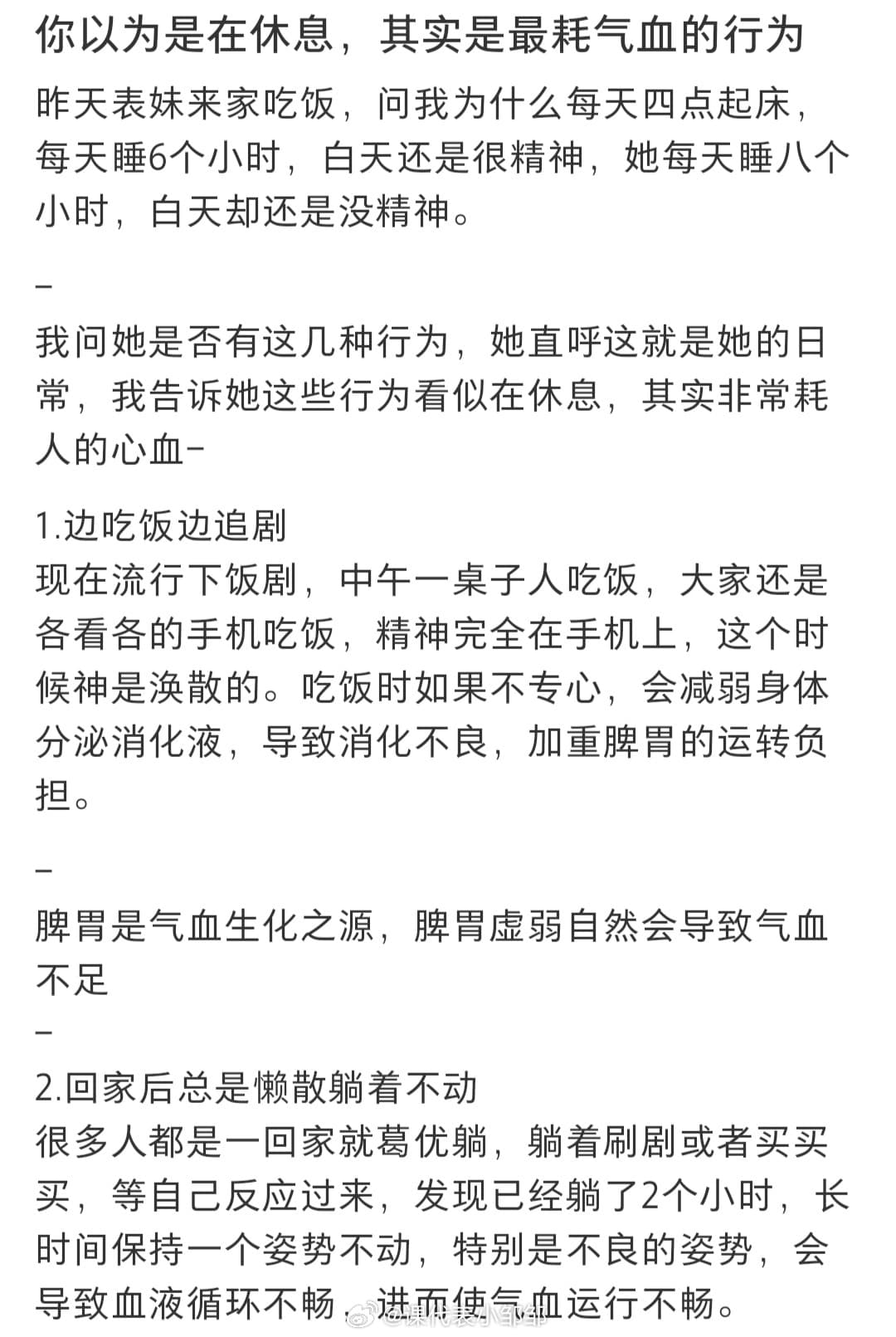Unmasking the Myths: How Common 'Restful' Habits May Be Sapping Your Energy and Health
In today's fast-paced world, rest and relaxation can often feel like luxuries. However, a recent discussion on Weibo, China's popular social media platform, has shed light on the fact that some common behaviors, often perceived as restful, can actually be detrimental to our health.

26 March 2024
The conversation started when a user shared their experience of feeling more energetic than their sister-in-law, despite sleeping fewer hours. The sister-in-law, who slept for eight hours, still reported feeling lethargic. Intrigued, the user asked about her daily habits, discovering that her routine included several activities that, while seemingly restful, were actually depleting her energy. The first habit, eating while watching TV or browsing social media, is a common sight in many households. However, research shows that this practice can negatively impact digestion, as it distracts from the mindful eating that promotes optimal digestive function. Another habit, lounging for extended periods without movement, can also lead to health issues. Prolonged periods of inactivity can lead to poor blood circulation, which in turn affects the body's overall energy levels. The post also warns about the dangers of keeping the air conditioning too cold, which can constrict blood vessels and lead to cold hands and feet. Similarly, excessive screen time can lead to eye strain and fatigue, while overthinking can harm the liver, which is responsible for blood production. The post concludes with a series of simple exercises designed to improve blood circulation and promote overall health. These include scalp massage, neck massage, eye exercises, and liver massage.
The conversation has sparked a lively debate on Weibo, with many users sharing their own experiences and habits. Some have expressed shock at how seemingly restful activities can actually be detrimental to health. Others have shared their own tips for maintaining energy levels and overall well-being. In conclusion, the discussion on Weibo serves as a reminder that rest and relaxation are not just about the amount of time spent resting, but also about the quality of that rest. By being mindful of our daily habits and taking steps to promote optimal health, we can ensure that our rest and relaxation periods are truly restorative.


